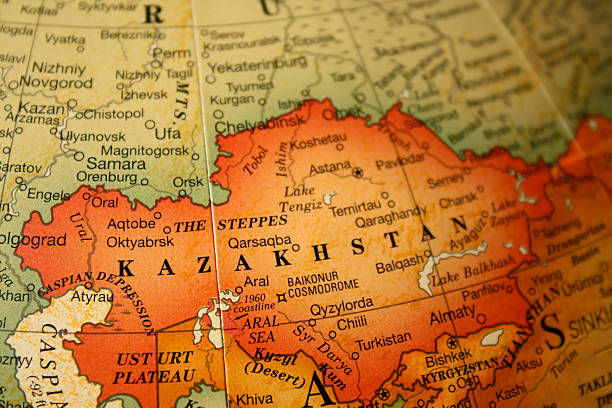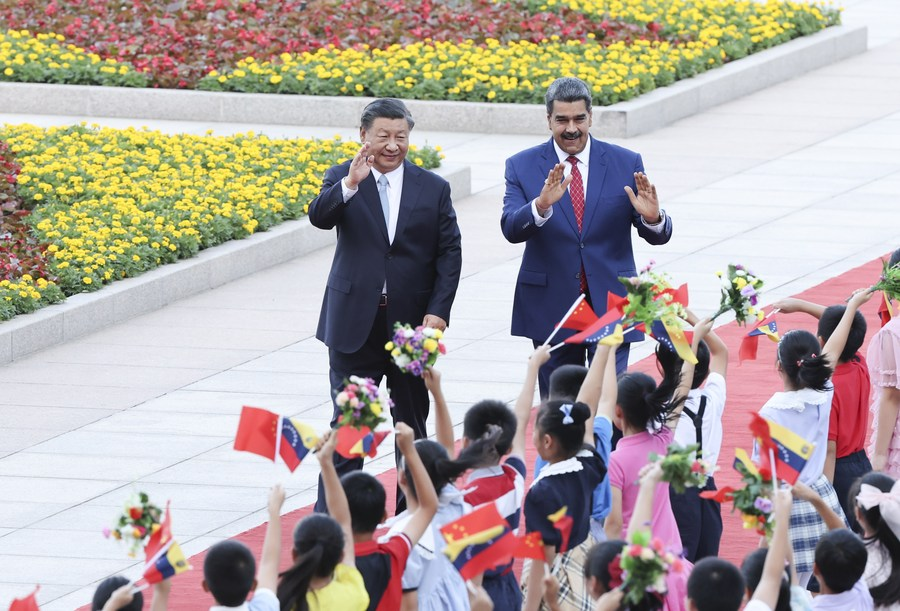The Great Game for Kazakhstan: The US Challenge to Chinese Hegemony
- Gabriele Iuvinale

- 31 lug 2025
- Tempo di lettura: 4 min
The Great Geopolitical Game in Central Asia will increasingly be played out in Kazakhstan. Statements by Julie Stufft, a candidate for the new US ambassador, reveal Washington's intention to counter Chinese and Russian hegemony in the region, focusing on its vast mineral reserves and diversifying trade routes. However, China has already cemented its influence through the Belt and Road Initiative, with trade exceeding that of the US by ten times and a dense network of investments in infrastructure, nuclear energy, and high technology, making Kazakhstan's position a delicate balance
The nomination of Julie Stufft as the new U.S. Ambassador to Kazakhstan is not a simple diplomatic act but a declaration of intent. During her Senate confirmation hearing, Stufft painted a picture in which Central Asia, long neglected by Washington, is now a crucial theater of geopolitical competition. Her mission is clear and aggressive: to counter the growing influence of China and Russia, support Kazakhstan in developing alternative export routes that bypass its bulky neighbors, and, in a strategically vital move, position American companies as the "preferred partner" in the crucial sector of critical minerals.
This commitment is part of a broader strategy by the Trump administration, which has already demonstrated direct interest by imposing a 25% tariff on almost all Kazakh imports—an unprecedented move that singled out the country in Central Asia. The signal is unequivocal: the United States wants Kazakhstan to re-evaluate its alliances, especially at a time when its immense reserves of rare earths, indispensable for future technologies, are under the global spotlight.
However, American ambitions are clashing with a deeply entrenched geoeconomic reality. China, taking advantage of Western disengagement and the power vacuum left by Russia's war in Ukraine, has methodically built a complex and all-encompassing power structure that makes Astana's position incredibly complex.

Kazakhstan: A Tightrope Walker Between Superpowers
Kazakhstan's foreign policy is historically based on a "multivector" approach, a delicate balancing act aimed at maintaining good relations with all major international players. However, in recent years, the center of gravity has shifted decisively toward Beijing. The "permanent comprehensive strategic partnership" with China is not just a diplomatic label but a deep intertwining of economic, political, and security interests.
The Multivector Dilemma: While Kazakhstan continues its military cooperation with Russia (through the CSTO) and shows openness to the U.S., its economic dependence on China has become so profound that this balance is now extremely precarious. The declared "golden age" in relations with China is not a betrayal of other powers, but a pragmatic recognition of where the biggest investments and growth opportunities currently lie.
The Sensitive Xinjiang Issue: A potential yet often-silenced point of friction between Kazakhstan and the West is the human rights situation in the neighboring Chinese region of Xinjiang. Many ethnic Kazakhs have relatives across the border, and their fate in detention camps is a sensitive topic. Despite internal and diaspora pressure, the Astana government has remained largely silent, demonstrating the absolute priority of not jeopardizing its relationship with its vital economic partner. This issue, if addressed openly, could become a powerful diplomatic lever for the U.S. but would place Kazakhstan in an extremely difficult position.
China's Influence: A Tight-Knit Web of Dependence
China's hegemony in Kazakhstan is the result of a methodical and comprehensive approach that combines massive investments, control of trade routes, and strategic alliances.
Economic Supremacy and the Belt and Road Initiative (BRI)
The numbers provide the most eloquent evidence of Chinese dominance.
Record Trade: The trade volume between China and Kazakhstan reached $44 billion in 2024, a staggering figure that is ten times higher than that of the U.S. with Kazakhstan. Both countries aim to double this number in the coming years.
Crucial Logistics Hub: Kazakhstan is the hub of the BRI. Over 80% of Chinese goods bound for Europe travel overland through its territory. The Trans-Caspian International Transport Route (TITR), a strategic path that crosses the Caspian Sea and bypasses Russia, saw a 60% increase in cargo traffic in 2024. This is not just an economic data point but a geopolitical victory that reduces logistics dependence on Russia and attracts the attention of the European Union, which sees this route as a vital opportunity for diversification.
Investments and Jobs: China is among Kazakhstan's top five largest investors, with 224 industrial projects underway, valued at $66.4 billion, set to create approximately 50,000 jobs. These projects cement the economic integration and make Kazakhstan an irreplaceable partner.
Strategic and Technological Alliances
Cooperation extends beyond traditional infrastructure to future-oriented sectors, positioning China as the preferred technological partner.
Strategic Reserves: Kazakhstan is the world's leading producer of uranium and recently announced the discovery of a vast rare-earth deposit. This resource, crucial for high-tech and green energy industries, is vital for China, which is securing privileged access.
Nuclear Energy: In an emblematic move of its "multivector policy," Kazakhstan has hired both Russia's Rosatom and China's CNNC for the construction of its new reactors. China is set to build the country's third nuclear power plant, and a cooperation agreement in the nuclear sector is being prepared, underscoring an increasingly deep partnership.
Technological Innovation: Kazakhstan recognizes China as a "global technological leader." The two nations have initiated the construction of a satellite ground station in Almaty and are exploring joint projects in artificial intelligence, biotechnology, and quantum computing, with the goal of joining China's Silk Road e-commerce pilot zone.
Security Cooperation
China's influence is reinforced by robust security cooperation. The Shanghai Cooperation Organization (SCO), of which Kazakhstan is a founding member, provides a framework for joint military exercises and countering the "three forces of evil": terrorism, separatism, and extremism. This partnership is vital for Beijing, which aims to ensure regional stability to protect its billions of dollars in investments and trade routes.
Conclusion: A Losing Race from the Start?
Julie Stufft's ambitious mission, backed by a renewed focus from Washington, faces a reality that is already well-defined. While the United States presents itself as an alternative, China has already built a tightly-knit power structure that spans commerce, infrastructure, technology, and security. Stufft's words are strong, but they must contend with concrete facts: the imposing volume of trade, strategic investments, and political consolidation. The game for Kazakhstan has not just begun; China is in a position of a clear advantage, and the endeavor to reverse this trend appears to be one of the most arduous geopolitical challenges for the United States today.




Commenti